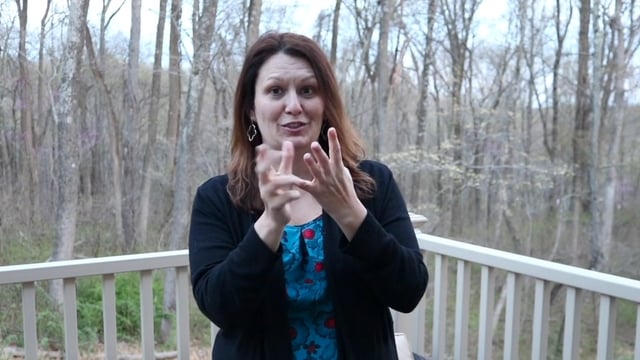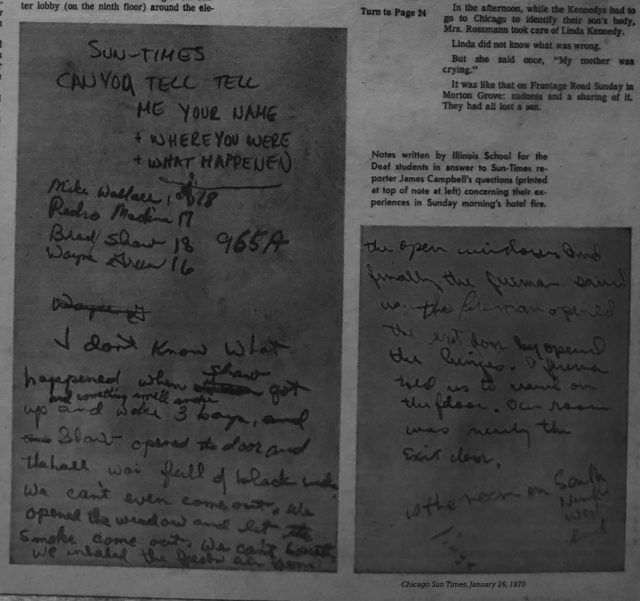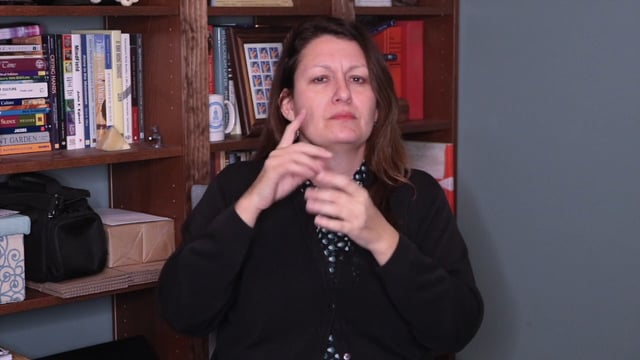This article originally appeared at www.deafprofessional.net.
An exclusive interview with Dr. Glenn Anderson
This is the first installment of a two-part article. The second installment appeared on September 21, 2006.
Hardly anybody batted an eyelash when Gallaudet University president Dr. I. King Jordan took the stage on September 1, 2005 to announce his December 2006 retirement, nearly two decades after suddenly being thrust into the international spotlight as the university’s first deaf president after the historical Deaf President Now protest. Even though this announcement didn’t come as a shocker, people across the nation began gossiping about whom the replacement would be. Hopeful applicants began preparing their resumes, including Dr. Glenn Anderson—who would potentially become the university’s first president of color in its 142-year history.
Dr. Anderson, who served as the Gallaudet Board of Trustees chair for 11 years, saw a glimmer of hope in his quest to become the nation’s first Black deaf college president. He was a finalist for the highest position at the National Technical Institute for the Deaf at the Rochester Institute of Technology in New York, but wasn’t selected. Now another golden opportunity presented itself, one that was too good to pass up. Dr. Anderson was optimistic about his chances.
Once the board chose one of its own members, 1974 Gallaudet graduate Pamela Holmes, to lead its presidential search committee on Oct. 6, Dr. Anderson began considering the possibility of resigning from the board in order to become a potential candidate. Tension ran high among community members, who wildly guessed the potential candidates. Names were thrown around: Roz Rosen, Robert Davila, Jamie Tucker. Dr. Anderson’s name came up often. There was a person who everyone knew was applying: Dr. Jane K. Fernandes, who was often called Jordan’s personal puppet throughout her term as university provost. Students and faculty didn’t appreciate her. Nobody wanted to believe she would be taken seriously as a candidate; in fact, many doubted she would make it into the final round. Even if she did make it in, they said, it was only because of her everlasting loyalty to President Jordan.
When the 17-member presidential search committee was revealed on Nov. 9, people learned that the committee was comprised of six board members, in addition to two students, two alumni, two staff, four faculty members, and one Clerc Center employee. People were perplexed at the composition of the committee; many committee members were labeled President Jordan’s cronies. Approximately a week before the committee membership was announced, Dr. Anderson did what everyone was waiting for: he submitted his resignation as chair in order to become a candidate for the presidency.
The anticipation in the air was so thick you could cut it with a knife. Rumors continued to be thrown around casually with as much power as a sledgehammer hitting the crumbling structures at Gallaudet. Names of applicants began to leak, much to people’s delight. Gallaudet watchers began mudslinging anonymously on blogs. Even Fernandes’ husband didn’t hesitate to jump on the bandwagon and wrote comments in support of his wife, much to the amusement of many.
In early April, Dr. Anderson learned that he had survived the first round, along with five other candidates: Dr. Fernandes, Dr. William Marshall, Ron Stern, Dr. Bobbie Beth Scoggins, and Dr. Steve Weiner. It was pretty much a given that Dr. Anderson would make it to the final round; after all, he been on the board for 16 years, 11 as chair—and he was the only applicant of color. Gallaudet had battled cries of discrimination for years; the university wouldn’t dare shoot itself in the foot by having an all-white line-up—or would it?
Yes, it would. After weeks of water cooler and kitchen conversations everywhere, the announcement came. On April 13, the names rolled off people’s hands as they excitedly fingerspelled to each other, “Weiner, Stern and Fernandes.” Although the focus was mostly on Dr. Fernandes, an underlying issue was that none of the finalists was persons of color—specifically, Dr. Anderson.
Angry people and organizations began crying foul. How could Gallaudet, located in a predominantly Black neighborhood, not choose any qualified candidates who were persons of color? And how did a finalist without a doctoral degree make it through to the final round? Questions began flying around out of astonishment and dismay. Students and staff who had experienced working with Dr. Fernandes began talking about the unimaginable: what if Dr. Fernandes was indeed hired? That couldn’t happen. . .or could it? Some went as far as claiming that the process was fixed, recalling that Dr. Jordan had unintentionally referred to Dr. Fernandes as “. . .the president—uh, the provost. . .” at his retirement announcement. This indicated, they said, that Dr. Fernandes already had the inside track as the next president.
Whether this was true or not, this wasn’t of importance to many. What National Black Deaf Advocates (NBDA) and many diversity supporters were more concerned about was the pressing question of why Dr. Anderson wasn’t in the final round. People began speculating about how Dr. Anderson must have felt, given his extensive involvement with the university and his qualifications. NBDA issued a position paper on April 24 “describing our concerns regarding the issue of diversity and again reiterating our support for Dr. Glenn Anderson, based not on color but on his credentials and proven record of service to Gallaudet University.” Still, Dr. Anderson chose to remain silent throughout the ensuing months—until now.
“The reasons I was not selected as a finalist were not provided to me by the search committee. I know there were numerous rumors on blogs and Internet postings about me, ranging from comments such as my supposedly having health problems to my apparently ‘bombing’ the interview,” Dr. Anderson says.
Lest people think Dr. Anderson isn’t qualified, take a look at his experience. A Chicago native, he has an impressive background, having worked in higher education settings for over 30 years: 24 at the University of Arkansas, 7 at LaGuardia Community College of the City University of New York, and 3 at New York University. Dr. Anderson earned a bachelor’s degree at Gallaudet in 1968, then a master’s degree from the University of Arizona in 1970 followed by a doctorate from New York University in 1982.
Besides, Dr. Anderson points to the position description. “When taking all of the areas of desired qualifications into consideration from a more holistic rather than a ‘micro’ perspective, I believe I met most of them. I also presume one must expect that in any search process, candidates will be strong in some areas and not so strong in other areas. Search committees are thus challenged to use their best judgments in identifying and choosing the top candidates.”
With a sturdy background and a broad understanding of the deaf or hard of hearing and Gallaudet communities, how could Dr. Anderson have been eliminated from the final round? Didn’t his being the chair of the university board of trustees count for anything? People wanted to know, but no answer was given, not even to Dr. Anderson. Dr. Anderson was “deeply disappointed” when he learned he was not a finalist, and even more so when he learned who the three finalists were.
“My disappointment was not just for me personally, but also for the larger constituency of deaf people of color. I had hoped that by ‘stepping up to the plate,’ my successful progression through the search process would help open up more doors of opportunity for deaf people of color,” he explains. “When the announcement of the three finalists was made, I could not help but sense that the message being communicated to deaf people of color was that the door was not yet fully open. It seemed to reaffirm, at least from my perspective, that the glass ceiling to the upper echelons of leadership in higher education still remained to be overcome.”
Dr. Anderson isn’t capable only in terms of credentials; he’s also an active community member who has long been involved with NBDA, National Association of the Deaf, and Arkansas Association for the Deaf, along with an induction into the American Athletic Association of the Deaf Hall of Fame for basketball. He’s a role model for many, regardless of race, age or cultural affiliation.
Still, some people cite Dr. Anderson’s lack of university administration experience, apart from being a faculty member at various universities and serving as board chair, as a potential reason. Dr. Anderson nods as he says, “I was clearly aware that I had never had an opportunity to work on a day-to-day basis as a senior level executive in a university setting. In addition, I had not worked in positions that required me to assume direct responsibility for major fundraising campaigns. Nevertheless, my 36-year record of leadership and professional accomplishments was strong. I had a successful and productive career.”
Meanwhile, the three final candidates prepared for their campus-wide presentations. Dr. Weiner was given only a weekend, Stern a week, and Dr. Fernandes two weeks—which many said was a sign of bias in the process. Blogs reported on how Dr. Fernandes’ staff attended Dr. Weiner’s and Stern’s presentations, allegedly taking notes as the candidates spoke. As students, faculty/staff, alumni and friends of Gallaudet regularly checked blogs and Web sites, Dr. Anderson’s supporters began to try and draw attention to what they claimed was blatant discrimination. Their efforts were essentially overshadowed by the attention given to the final three candidates.
For weeks after the final three were announced, and then ultimately the selection of Dr. Fernandes as the university’s ninth president, protests took place on campus demanding the reopening of the presidential selection process. Rallies were held. Students set up a makeshift “Tent City” on the front grassy knoll of the university, shutting down the main entrance to campus. Students, faculty and alumni came together to express their outrage at the seemingly biased selection process; national media reported that the faculty gave a no-confidence vote to Fernandes as provost and as president on May 8, among other resolutions. The Faculty/Staff/Students/Alumni (FSSA) group was formed, with one goal in common among its members: the immediate reopening of the presidential search process. Time after time, in forums such as the GallyNet e-mail discussion group, the seemingly rushed selection of Dr. Fernandes was debated. Supporters on both sides of the issue bickered, throwing around conspiracy theories. Yet, Dr. Anderson remained in the background, declining comment, as did Dr. Weiner and Stern. Life resumed to normalcy—or what passed as normal, anyway. This didn’t mean Dr. Anderson didn’t identify with the protestors’ puzzlement and discontent, though.
“Although a decision has been made regarding selection of the ninth president of Gallaudet, I am empathic to the concerns expressed by FSSA and other stakeholders. The search process did occur over a rather ‘truncated’ period of time. In general, many presidential searches tend to transpire over longer and more engaged periods of time. The consequence of Gallaudet’s rather ‘truncated’ search process is that, unfortunately, it did not result in broad unanimity regarding the three finalists nor the final choice,” Dr. Anderson reflects. “However, I did not envision the outcome would result in the establishment of Tent City on campus.”
Buried deep in the outrage about Dr. Fernandes’ appointment were assertions that Dr. Anderson’s elimination was because of his skin color. Dr. Anderson is pensive about this. “One will never know if race was or was not a factor. Given Gallaudet’s rather public announcements about its commitment to diversity and its inclusion of diversity among its eight strategic goals, I would be extremely disappointed if race indeed was a factor in why I was not selected as a finalist. As I understand, the search committee was seeking candidates who fit a certain profile. My guess is that I apparently I did not completely fit the search committee’s ‘profile’ for the top candidates.”
A student during the 1960s civil rights era, Dr. Anderson experienced numerous incidents at Gallaudet that he rarely discusses openly. One such incident occurred with the class of 1968, in which Dr. Anderson actively participated through class meetings. He even paid membership dues used for outings at the end of the school year. “During my junior and senior years in 1967 and 1968, I did not go with my class on the spring outings,” he remembers. “I do not know exactly where they went for the outings, but I presume it was a place that had a private lake and other recreational opportunities. Members of my class had to inform me that the places they selected for the outings did not welcome Black people.”
Dr. Anderson was refunded half of his dues, which were used to go out to a restaurant with another Black student. “Over the years, I often wondered why the class was not willing to find a different place that would have allowed me to come with them,” he says. “Does discrimination and racism still exist today? I would say, yes, unfortunately it still exists. Perhaps it does not exist to the same extent or as overtly as during the time I was a student at Gallaudet, which was when the civil rights era was at its pinnacle and also during the time that Dr. Martin Luther King was assassinated and riots occurred all over the U.S.” He is quick to note that although prejudice still exists, “progress is going to be incremental. I am sure we’d agree that changing attitudes, feelings, and perceptions are not things that change overnight.”
Note: National Black Deaf Advocates was contacted for this article; they did not return our requests. NBDA’s open letters and position papers regarding the presidential search process may be found at its website.
Read more about Dr. Anderson’s perspectives on the presidential search process, the board composition and the future of Gallaudet in the next installment on September 21, only at Deaf Professional Network!
Copyrighted material. This article can not be copied, reproduced, or redistributed without the written consent of the author.




